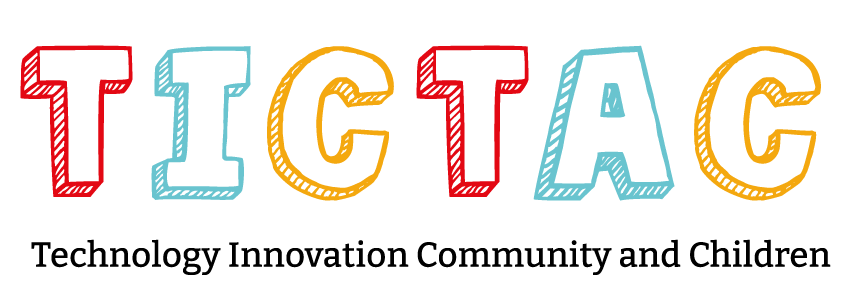What do we do?
TICTAC focuses on exploring how to better support the learning process by using technology by investigating the opportunities and challenges to use digital artefacts to design cross-curricular experiences for transversal skills learning.
We have several projects that are running at the moment that we could deliver in schools or engage parents and children.
What’s our approach?
Our approach is grounded on mapping the technology into activities that aim at (1) the development of a critical thinking mindset, (2) supporting learning and teaching of cross-curriculum subjects and soft skills.
The use of technology for designing activities that can train children to develop a critical thinking mindset can lead to:
• be independent thinkers,
• have more agency over the learning process but also as a citizen,
• be more engaged in the learning experience by bringing their own interests (e.g. climate change)
• be more aware of consumers and producers of digital media and artefacts.
We aim at facilitating cross-curriculum subjects learning by:
• Integrating different subjects into one complete activity
• Harmonizing the learning objectives
• Address cross-curricular experiences for transversal skills learning
What projects do we currently have?
At the moment we have three types of activities, we will provide the technology and the technical support:
1. Computational thinking with micro:bit and microcode
2. Critical thinking for understanding AI and robotics
3. Facing gender stereotype with digital storytelling
In terms of educational benefits, these activities lead to many goals of the national curriculum as for example:
- Computing: use technology safely, respectfully and responsibly; recognise acceptable/unacceptable behaviour; identify a range of ways to report concerns about content and contact
- Design and technology: develop the creative, technical, and practical expertise needed to perform everyday tasks confidently and to participate successfully in an increasingly technological world, critique, evaluate and test their ideas and products and the work of others
- Relationships education (RSE): working in teams will challenge their ability of collaborating and socialise, understand the importance of equality and respect
- English: Spoken language, use discussion in order to elaborate and explain clearly their understanding and ideas
